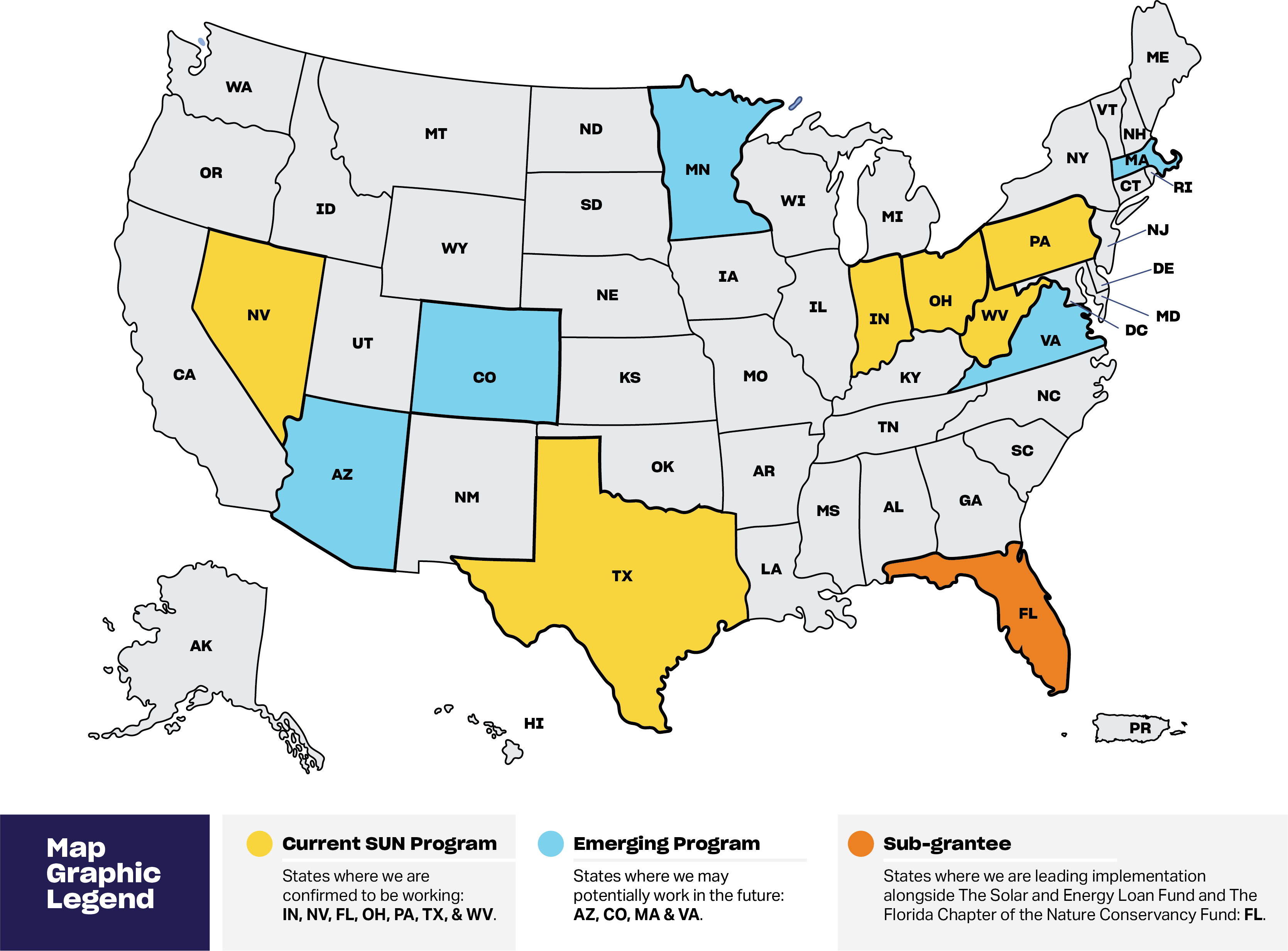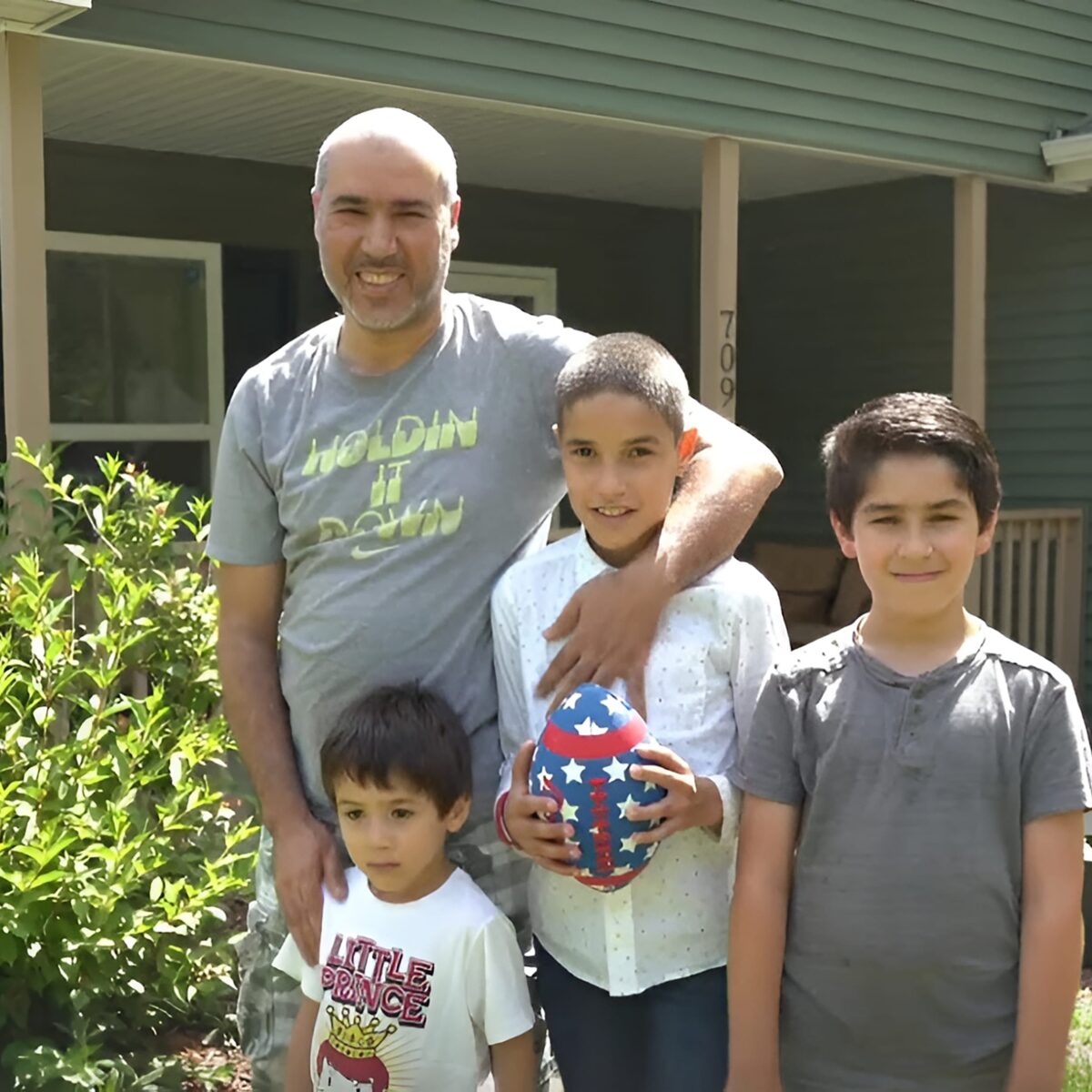How Solar for All can cut your energy bills
- Factsheet
🚨 Solar for All funding is under threat.
On August 7, The EPA announced it would try to illegally clawback Solar for All funding. Ask Congress to tell the EPA to reverse its unlawful action so more Americans can benefit from solar energy.
You always turn off the lights when you leave the room. You only run the A/C when you absolutely need to. And still, your energy bill keeps going up. Solar for All can help.
Solar for All is a nationwide program funded by the federal government. It will help income-qualified families benefit from solar energy. The funding was made possible by the Inflation Reduction Act. In April of 2024 the Environmental Protection Agency distributed $7 billion to 60 grant recipients.
The goal of the funding is to not only reduce greenhouse gas emissions, but also to deliver benefits to income-qualified and disadvantaged communities. According to the EPA:
- 90% of the grantees plan to fund residential rooftop solar, 88% of grantees will also fund community solar projects serving income-qualified and disadvantaged households.
Where does Solar for All operate?
The 60 grant recipients will be implementing programs across all 50 states, the District of Columbia, Puerto Rico, and other territories. The grant recipients are designing programs that are specifically tailored for their communities.

Consumer awareness tip: Don’t be tricked by aggressive door-to-door salespeople or advertisements urging you to share personal information. Let us help you connect to a legitimate Solar for All Program.Why is Solar for All important?
Solar for All program is an historic one-time investment by the federal government that will:
- help income-qualified families lower their energy bills
- eliminate barriers to solar energy,
- transform the market by encouraging private investment after the 5 year program has ended.

It’s a good time to have the solar panels to save some money now.
How is SUN involved in Solar for All?
Solar United Neighbors (SUN) helped several grantees with their proposals and we are actively participating in the deployment of programs across the country. In Florida, we are one of the sub awardees along with Solar and Energy Loan Fund and the Nature Conservancy in Florida. There, we will be using our knowledge and experience to deploy solar for disadvantaged communities in the Sunshine State.
We’ll be using our 15+ years of experience helping families go solar to provide technical assistance to any Solar for All grantee.
Here’s how SUN can help:
- Design and implement bulk purchase programs
- Work with communities interested in deploying community solar projects
- Manage and design implementation of community benefit planning
- Provide clear user-friendly materials on solar as well as access to our National Solar Help Desk
- Guide advocacy support to aid in the market transformation, especially focused on interconnection and solar permitting
- Help homeowners after they have gone solar
If you have any questions, reach out to our National Solar Help Desk. You can call 202-888-3601 or email us at info@solarunitedneighbors.org.
Solar Renewable Energy Credits (SRECs) and SUN’s Impact SREC program
SUN is invested in expanding equitable access to solar. We do this in several ways. One way is through the development of incentive and financing options that make solar more accessible.
This is why we’ve developed our Impact SREC program. “SREC” is short for Solar Renewable Energy Credits. SRECs represent the “green” value of your electricity. Many places require a certain percentage of the electricity utilities sell come from renewable sources, like solar. Utilities can meet these requirements by buying SRECs. Like a stock, SRECs increase or lower in value depending on the level of demand for them..
Not every state has a requirement for utilities to buy SRECs. This is where SUN’s Impact SREC program comes in. It helps homeowners who live in these places earn value from their SRECs. SUN works directly with a company that transacts with corporations to help those companies fulfill their carbon credit/community investment offset needs. This way, homeowners can monetize their RECs and maximize the value of their solar array.
Learn more about how SRECs work.
Additional resources
Solar For All factsheet
Walksheets by location
Case Study: Harnessing the Power of Nonprofits to Deliver Low-Cost Solar to Low-Income Homeowners
Report: Lessons learned from developing and implementing a low-income solar program in Washington, D.C.
Wherever The Sun Shines: Bringing Solar Power To All Households
Low-income Solar Policy Guide
Solar with Justice
Shared Renewable Energy for Low to Moderate-income consumers: Policy guidelines and model provisions
Get the latest on solar straight to your inbox.
Fight for your solar rights.
Everyone has the right to go solar. Spread the sunshine nationwide and in your local community by taking action, joining events, and more.